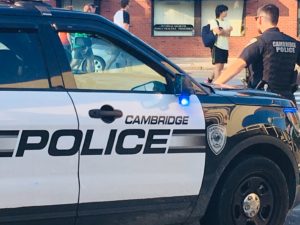Fourteen years after policing in Cambridge attracted national attention, the city’s two police departments are again considering improvements to how they interact with the general public amid calls for reform.
Attempts at change by the Cambridge and Harvard University police departments share similar traits, such as soliciting reviews from outside experts and appointing committees. They also operate under some very different parameters.
In 2009, the Cambridge Police Department came under scrutiny after Sgt. James Crowley arrested Harvard University professor Henry Louis “Skip” Gates Jr. on the porch of his university-owned house.
The incident and the reactions it drew provided a type of Rorschach test for race relations in America. It also prompted the appointment of a review committee and a 64-page report, “Missed Opportunities,” that answered few pertinent questions.
Cambridge officials announced in late February several measures designed to increase transparency and public safety. Meanwhile, the HUPD and its advisory board is preparing to update a previous activity report that drew fire when it revealed a disproportionate arrest rate of Blacks, The Harvard Crimson reported in 2021.
More than a decade removed from Gates’ arrest, the looming question is whether the latest round of reports and committees are performative or a prelude to long-awaited progress.
Knee-jerk reactions to specific incidents have previously lacked the needed staying power. The time for change in public safety protocols is long overdue, said Stephanie Guirand, a researcher for Cambridge-based The Black Response.
“People really want there to be a solution, rather than academic discourse,” she said.
